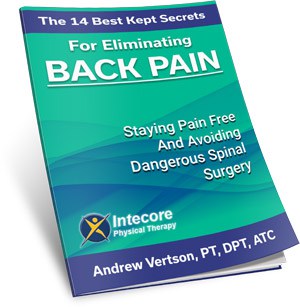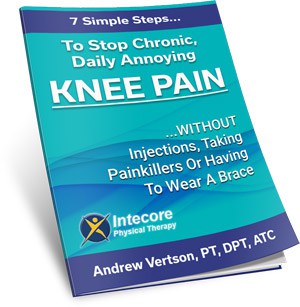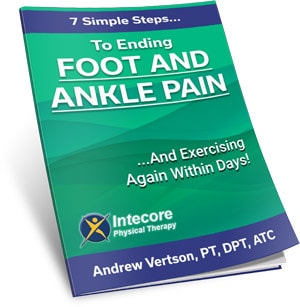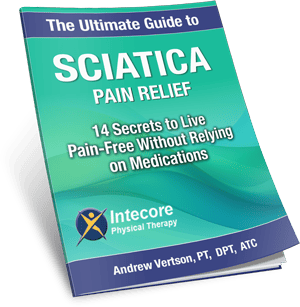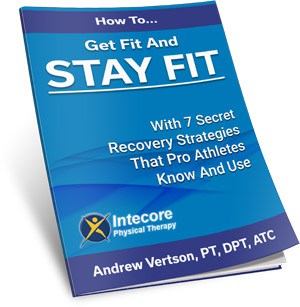
As the leaves turn golden and the air gets crisp, the holiday season rolls in, bringing its own blend of joy, excitement, and, let’s face it, stress. The anticipation of Thanksgiving, with all its warmth and family gatherings, can also bring in a whirlwind of tasks and expectations with it. But what if this year could be different? What if you could navigate the holiday season with more calm and less stress?
In this blog, I’ll share some practical strategies to help you truly enjoy this special time of the year with loved ones without holiday season stress.
More Posts Like This By Intecore:
Injury Prevention – A Physical Therapist’s Guide
The Morning Stretches You Can Do To Avoid Pain
How To Travel For Vacations When You Have Pain
Table of Contents
What is holiday season stress and why is it important to manage it?

Holiday season stress is that feeling of being overwhelmed, anxious, or stretched too thin during the holiday season. It’s the pressure of cooking the perfect meal, the rush of last-minute shopping, and the challenge of juggling family dynamics. Managing this stress is crucial because it’s not just about surviving the holidays; it’s about enjoying them. It’s about preserving your health, both mental and physical, and making space for the joy that the season promises.
1. Recognizing Holiday Stress
Recognizing holiday stress is the first step towards managing it. Common signs include:
- Feeling overwhelmed or irritable
- Difficulty sleeping or concentrating
- Headaches or muscle tension
- Changes in appetite
- A sense of dread about holiday activities
2. Understanding the Impact of Stress on Your Well-being
Physical Health: During periods of high stress, like the holiday season, your body’s fight-or-flight response is in overdrive, releasing stress hormones like cortisol and adrenaline. This response, while beneficial in short bursts, can be detrimental when we’re in it for a long time.
- Weakened Immune System: Chronic stress can suppress your immune system, making you more susceptible to colds, the flu, and other infections—definitely not what you want when you’re gearing up for family gatherings and festive celebrations.
- Sleep Disturbances: Stress often leads to trouble falling asleep or staying asleep. Lack of quality sleep can exacerbate stress, creating a vicious cycle. Inadequate sleep not only leaves you tired and irritable but also affects cognitive functions and physical health.
- Exacerbation of Chronic Health Problems: For those with pre-existing health issues like hypertension or asthma, stress can worsen symptoms. It can elevate blood pressure, trigger asthma attacks, and cause or worsen pain, such as headaches or back pain.
3. Practical Stress Relief Tactics
Navigating the holiday season without succumbing to stress requires more than just good intentions. It calls for practical, actionable strategies that you can incorporate into your daily routine. Let’s explore some effective stress relief tactics that can make your holiday experience more joyful and less taxing.
Prioritizing self-care

Self-care is an essential, yet often neglected component of stress management, especially during the busy holiday season. Here are some ways you can incorporate self-care into your day:
- Make Time for Yourself: Allocate some time each day for activities that you enjoy, whether it’s reading a book, taking a warm bath, or going for a walk.
- Stay Active: Regular physical activity is a proven stress reliever. Even a short daily walk can boost your mood and reduce stress levels.
- Eat Well and Stay Hydrated: Nutritious food and plenty of water can help maintain your energy levels and keep your body equipped to handle stress.
- Get Adequate Sleep: Ensure you’re getting enough rest. A well-rested body and mind can cope with stress more effectively.
Incorporating relaxation techniques into your routine
Integrating relaxation techniques into your daily life can significantly reduce stress levels.
- Practice Mindfulness and Meditation: These practices can help you stay grounded and calm, reducing the holiday hustle’s impact on your mind and body.
- Deep Breathing Exercises: Simple yet effective, deep breathing can help lower stress hormone levels, relax muscles, and calm the mind.
- Yoga and Stretching: These activities not only help in relieving physical tension but also promote mental relaxation.
Managing expectations and setting boundaries
A major source of holiday stress is often our own expectations and the inability to set healthy boundaries.
- Be Realistic: Understand and accept that everything might not go as planned. Be flexible and open to changes.
- Communicate Openly: Express your needs and limitations to family and friends. Honest communication can prevent misunderstandings and undue pressure.
- Learn to Say No: You don’t have to attend every event or meet every demand. It’s okay to decline invitations or tasks if they contribute to your stress.
- Delegate and Share Responsibilities: Don’t take on everything yourself. Share the load with family members or friends, making holiday preparations a shared activity rather than a solo burden.
Implementing these tactics can help manage stress levels and make the holiday season a more enjoyable and fulfilling experience. Remember, taking care of your mental and emotional health is just as important as any other holiday preparation. You can find more tips here.
5. When to Consider Consulting a Physical Therapist for Stress Management
While stress management often involves self-care and lifestyle adjustments, there are times when professional guidance can be invaluable. Physical therapists aren’t just for injuries or physical ailments; they can also be a key resource in managing stress, particularly when it manifests physically. Here are some scenarios where consulting a physical therapist could be beneficial for stress management:
- Persistent Physical Symptoms: If you’re experiencing ongoing physical symptoms of stress, such as muscle tension, headaches, or chronic pain, especially in the neck, back, or shoulders, a physical therapist can help. We can provide targeted therapies to alleviate these physical manifestations of stress.
- Difficulty Relaxing or Unwinding Physically: Sometimes, despite trying relaxation techniques, you might find it hard to physically relax or release tension. Physical therapists can teach you specific exercises and stretches that target areas of tension and provide hands-on therapy to help relax your muscles.
- Poor Sleep due to Physical Discomfort: If stress is affecting your sleep, particularly through physical discomfort or pain, a physical therapist can offer solutions. We can suggest sleep postures or ergonomic adjustments to improve your sleep quality.
- Exercise as a Stress Reliever: For many, exercise is a powerful stress management tool. A physical therapist can develop a personalized exercise program that not only suits your physical condition but also helps in relieving stress.
- Body Awareness and Posture Correction: Stress often leads to poor posture, which can exacerbate physical discomfort. Physical therapists are experts in teaching body awareness and correcting posture, which can help relieve stress-related tension.
Ready To Work With A Physical Therapist?
If you’ve found this blog helpful and are eager to put these strategies into practice, we invite you to take the next step with us. To find out more, click here to fill out this form and tell us more about what’s going on, and our team will be in touch. You can also give us a call here: 949-565-4944
- Why Are My Feet Swollen? Common Causes Explained - June 2, 2025
- What Is Restless Leg Syndrome? Symptoms, Causes, and Relief Options - May 5, 2025
- Finding Your Balance: Inside and Out - April 22, 2025





